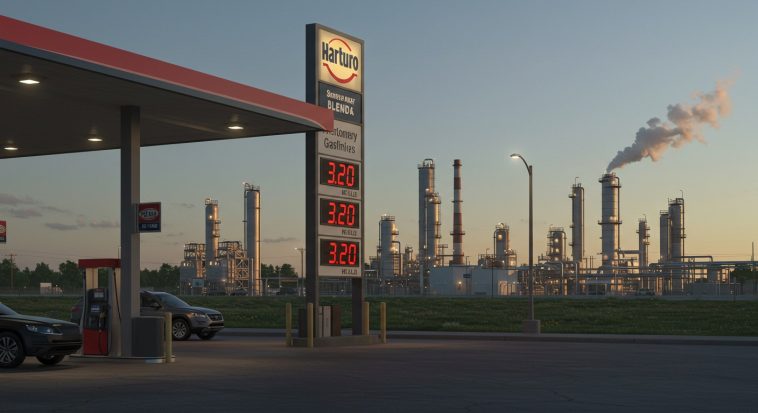Summer Blend Gasoline Drives Price Increases at the Pump
Summer blend gasoline is contributing to rising prices at the pump across the nation, with the national average reaching its highest level since September. According to AAA data, the average price for gasoline is currently hovering near $3.24 per gallon, marking a $0.14 increase from a month ago, though still $0.29 lower than the same time last year.
“Refineries are making the switch to summer blend gasoline, which is more expensive to produce,” explained Aixa Diaz, AAA spokesperson. “This is also the time of year when many refineries undergo maintenance and those shutdowns affect supply temporarily.”
Summer Blend Gasoline Coincides with Increased Travel
The transition to summer blend gasoline comes as weather improves and drivers embark on spring break road trips, creating additional demand pressure. Government data released Wednesday shows gasoline inventories in the US have fallen to their lowest level since December, further contributing to the price increases.
These higher gas prices align with a recent oil rally that has pushed prices back into positive territory year-to-date. West Texas Intermediate crude was trading slightly above $71 per barrel on Wednesday, while Brent futures traded above $74.
Geopolitical Factors Affecting Summer Blend Gasoline Markets
Geopolitical moves from the Trump administration have helped send WTI back above the $70 threshold. These include pressure on Iran to agree to a nuclear deal, tariff threats on imports from countries purchasing crude from Russia unless Moscow returns to Ukraine peace talks, and “secondary tariffs” on Venezuelan energy.
“There’s no way to avoid the geopolitical events that are hitting the market from every direction whether it’s Venezuela and Iran and Russia oil potentially being taken off the market…or demand getting hit from a potential trade war, and if not a trade war then just tariffs hurting demand,” said Vikas Dwivedi, Macquarie Group global energy strategist.
Summer Blend Gasoline Prices May Face Additional Pressure
On Wednesday, traders awaited details regarding reciprocal tariffs on US trading partners, expected to be announced by President Trump. Patrick De Haan, head of petroleum analysis at GasBuddy, noted: “Much uncertainty over what today will bring from the White House on tariffs — but aggressive tariffs over 10/15% could trigger a larger drop in oil prices, while less aggressive tariffs could boost oil prices on optimism that the economy will be better off.”
Goldman Sachs analysts estimate that if oil imports are levied at a rate of 10%, the price of wholesale and retail refined products such as gasoline and diesel would increase. “The cost increase would be larger in the US East and US West Coast, where there is neither discounting of imported barrels nor the potential to displace imports with domestic production,” according to Goldman Sachs analysts.
Impact of Summer Blend Gasoline on Consumer Budgets
As summer blend gasoline continues to affect prices at the pump, consumers may need to adjust their budgets for transportation costs in the coming months. The combination of seasonal factors, geopolitical tensions, and possible tariffs creates a complex pricing environment that could continue to impact gas prices throughout the summer driving season.



